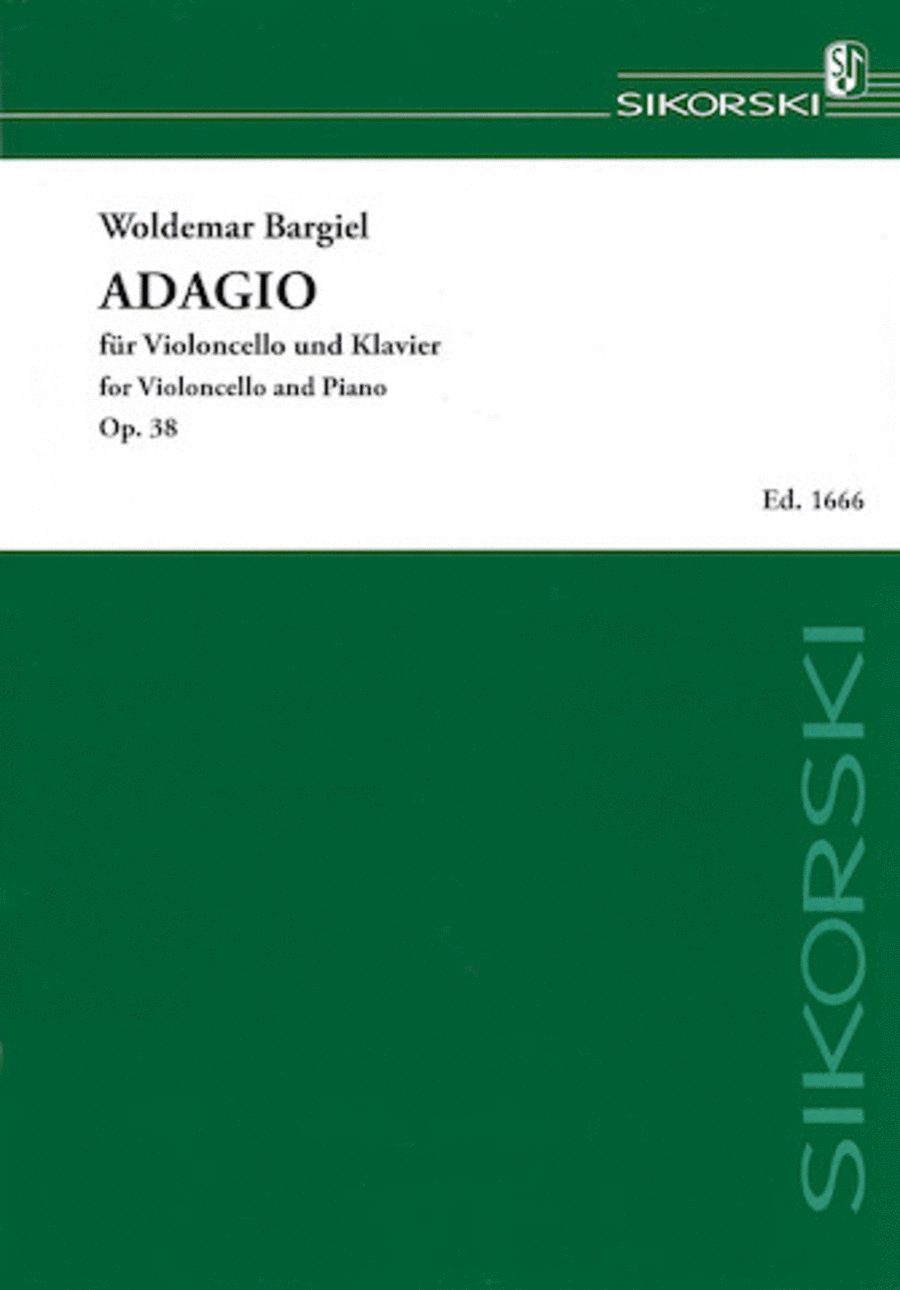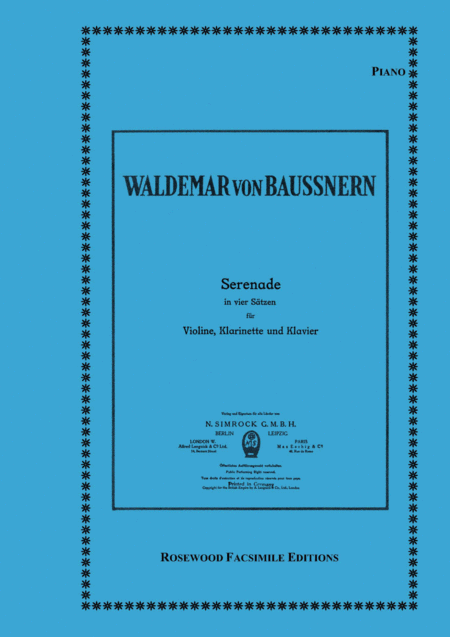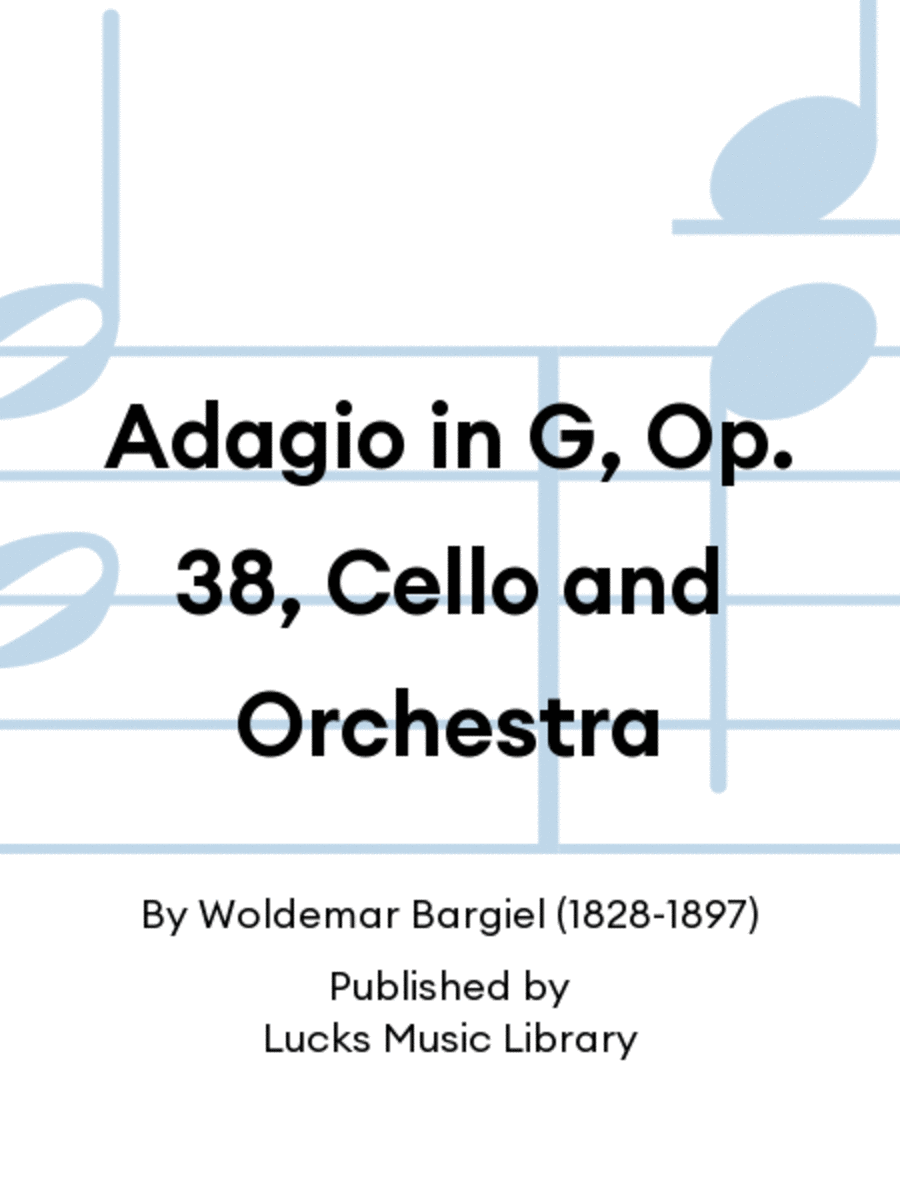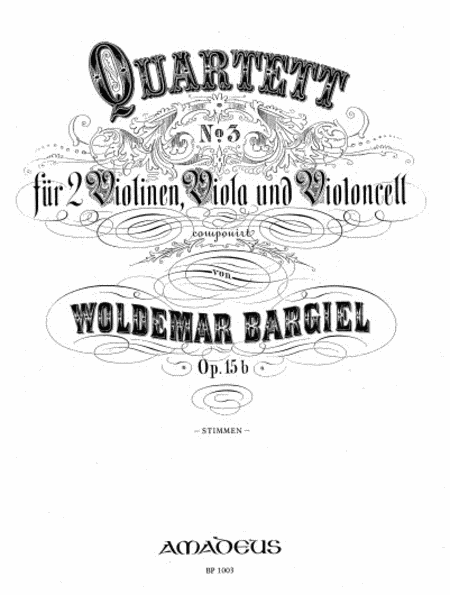Woldemar Bargiel (1828 - 1897)
 Allemagne
Allemagne
Woldemar Bargiel (3 October 1828 – 23 February 1897) was a German composer. Bargiel was born in Berlin, and was the half brother of Clara Schumann. Bargiel’s father Adolph was a well-known piano and voice teacher while his mother Mariane[1] had b ... (Read all)
Source : Wikipedia
 Allemagne
AllemagneWoldemar Bargiel (3 October 1828 – 23 February 1897) was a German composer. Bargiel was born in Berlin, and was the half brother of Clara Schumann. Bargiel’s father Adolph was a well-known piano and voice teacher while his mother Mariane[1] had b ... (Read all)
Source : Wikipedia
Free sheet music of Woldemar Bargiel
40 sheets found sorted by:
Search
| ||||||||||||||||||||||||||||||
© 2000 - 2024
Home - New releases - Composers
Legal notice - Full version































